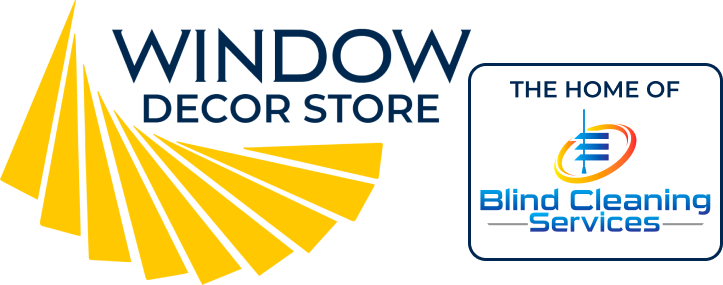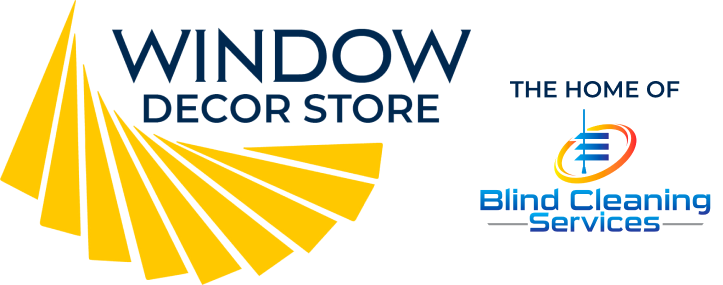As the leaves change and the air turns crisp, many Michigan homeowners brace for the annual onslaught of fall allergies. While most people blame ragweed, mold spores, and dust from fallen leaves, few realize that their window treatments—especially blinds—may be silently contributing to their symptoms.
If you’ve been sneezing, coughing, or dealing with itchy eyes this season, your blinds might be part of the problem. In this article, we’ll explore how fall allergies are triggered indoors, why blinds are major culprits, and what you can do to reduce allergens in your home.
What Causes Fall Allergies?
Fall allergies are primarily caused by airborne allergens that spike between late August and early November. The most common triggers include:
- Ragweed pollen: A single plant can release up to a billion pollen grains.
- Mold spores: Thrive in damp leaves and humid environments.
- Dust mites: Multiply in warm homes as heating systems kick on.
- Pet dander: Often stirred up during seasonal cleaning.
While outdoor allergens get most of the blame, indoor sources—especially dirty blinds—can trap and circulate these irritants, making symptoms worse.
Why Blinds Are a Hidden Allergy Trap
Blinds are often the most neglected surface in a home when it comes to cleaning. Unlike floors or countertops, they quietly collect dust, pollen, and dander over time. Here’s why they’re especially problematic during fall allergy season:
1. Horizontal Surfaces = Dust Magnets
Each slat acts like a shelf for airborne particles. Without regular cleaning, blinds become reservoirs of allergens.
2. Fabric Blinds Hold More Than You Think
Roman shades, cellular shades, and other fabric-based treatments absorb pollen, pet hair, and even mold spores.
3. Closed Windows Trap Allergens Inside
As temperatures drop, windows stay shut—meaning allergens have nowhere to escape and settle on surfaces like blinds.
4. Heating Systems Stir Up Dust
Forced air systems circulate allergens that have settled on blinds, shades, and drapes, pushing them back into the air you breathe.
Symptoms of Fall Allergies Worsened by Dirty Blinds
If your blinds haven’t been cleaned recently, you may notice:
- Sneezing fits near windows
- Itchy or watery eyes
- Nasal congestion or post-nasal drip
- Coughing or wheezing
- Headaches or fatigue
These symptoms often intensify in rooms with heavy window treatments or poor ventilation. Bedrooms and living rooms are common hotspots.
How to Reduce Fall Allergies at Home
The good news? You can dramatically reduce fall allergies by taking a few proactive steps—starting with your blinds.
1. Dust Weekly
Use a microfiber cloth or duster to gently clean each slat. Avoid feather dusters, which can stir up particles.
2. Vacuum Fabric Shades
Use a brush attachment to vacuum Roman, cellular, or roller shades. Focus on folds and seams where allergens hide.
3. Deep Clean Every Season
Professional blind cleaning removes embedded allergens that DIY methods miss. Fall is the perfect time to schedule a service.
4. Clean Drapes and Curtains
These absorb allergens like a sponge. Vacuum monthly and dry clean or steam clean seasonally.
5. Replace Old or Damaged Blinds
Warped, stained, or frayed blinds may harbor mold or mildew. Consider upgrading to easy-to-clean options like faux wood or aluminum.
Material Matters: Which Blinds Are Best for Allergy Control?
If you’re considering new window treatments, choose materials that resist allergen buildup:
| Material | Allergy Rating | Maintenance |
| Faux Wood Blinds | ⭐⭐⭐⭐ | Easy to wipe clean |
| Aluminum Blinds | ⭐⭐⭐⭐ | Durable and washable |
| Vinyl Roller Shades | ⭐⭐⭐⭐ | Minimal dust retention |
| Fabric Roman Shades | ⭐⭐ | Require frequent vacuuming |
| Drapes (Heavy Fabric) | ⭐ | Absorb allergens easily |
For allergy-prone households, stick to non-porous materials and avoid heavy fabrics unless professionally cleaned regularly.
Michigan-Specific Allergy Challenges
Michigan’s fall season presents unique challenges for allergy sufferers:
- Humidity fluctuations can lead to mold growth on blinds and shades.
- Leaf debris tracked indoors introduces outdoor allergens.
- Closed windows trap pollen and dust inside for months.
According to the Asthma and Allergy Foundation of America, several Michigan cities rank high for seasonal allergy severity. That makes indoor allergen control even more critical.
DIY vs. Professional Blind Cleaning
While weekly dusting helps, professional blind cleaning offers deeper relief from fall allergies. Here’s how they compare:
| Method | Effectiveness | Time Investment | Risk of Damage |
| DIY Dusting | Moderate | High | Low |
| DIY Vacuuming | Moderate | Medium | Medium |
| Professional Cleaning | High | Low | None |
Professional services use specialized equipment to remove allergens from every surface—especially hard-to-reach areas between slats and inside mechanisms.
Commercial Spaces Aren’t Immune
If you manage an office, school, or retail space in Michigan, dirty blinds could be affecting employee health and productivity. Symptoms of fall allergies can lead to:
- Increased sick days
- Reduced focus and energy
- Poor indoor air quality
Commercial blind cleaning is a smart investment for healthier work environments—especially during peak allergy season.
When to Schedule Blind Cleaning in Michigan
Timing is everything. For maximum relief from fall allergies, schedule blind cleaning:
- Late August to early October: Before allergens peak indoors
- Before turning on heating systems: Prevent dust circulation
- Before holiday hosting: Create a fresh, allergen-free space
Recurring seasonal cleanings (fall and spring) offer the best protection for allergy-prone households.
Breathe Easier This Fall—We Can Help
Don’t let dirty blinds make your fall allergies worse. Whether you’re dealing with sneezing fits, itchy eyes, or just want a cleaner home, professional blind cleaning is a simple, effective solution.
If you’re in Michigan—especially near Novi—contact our blind cleaning experts today to schedule your fall service. We’ll help you eliminate allergens, refresh your window treatments, and breathe easier all season long.



